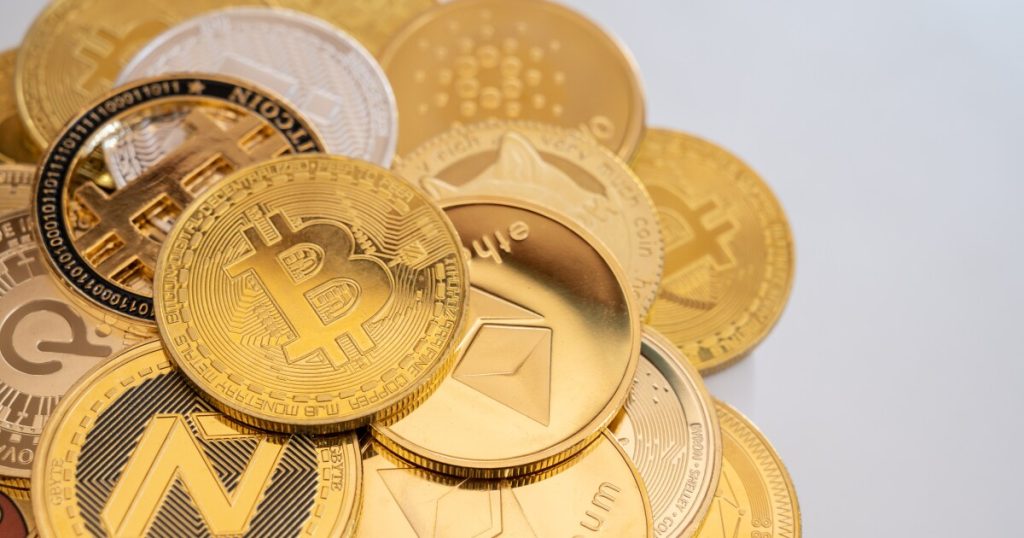Adobe Stock
Recent turmoil in global bond markets is a stark reminder that volatility is a permanent feature of finance. From interest rate shocks to geopolitical tensions, disruption is inevitable. But what’s no longer acceptable is how brittle our financial infrastructure remains in the face of that volatility. Liquidity bottlenecks, slow settlement and multilayered operational risk are not just legacy problems, they are competitive liabilities.
Tokenization isn’t a cure for volatility. But it does offer something that should matter to every U.S. bank: resilience. By representing financial assets, such as bonds or Treasuries, as
This is not just a vision of the future; it is already happening. BlackRock, HSBC, Franklin Templeton and Aberdeen are among the major financial institutions actively issuing tokenized financial products on-chain. Money market products may be the tip of the spear, but tokenization is rapidly advancing into asset classes like private credit and commercial real estate. Now is the moment for American banks to lead, before global competitors set the terms.
Tokenization replaces legacy plumbing with programmable infrastructure. By turning financial instruments into software, banks can settle transactions in seconds instead of days, automate compliance and offer clients fractional access to high-quality assets previously out of reach. This isn’t about speculative cryptocurrencies; it’s about using efficient regulated infrastructure to upgrade the core of financial services.
For banking institutions, the business case is both offensive and defensive. Tokenization reduces costs, accelerates time to market and provides the technological foundation to maintain relevance in a financial system that’s rapidly digitizing.
This is no longer a theoretical discussion. Emerging regulatory frameworks like Europe’s Markets in Crypto-Assets Regulation, or MiCA, and Singapore’s Payment Services Act, or PSA, are bringing much needed clarity. Singapore, Japan, and Hong Kong, through industry consortia and regulatory sandboxes, are piloting tokenized funds, bonds and structured products. The Middle East, enabled via aligned policy and sovereign backing, is actively promoting tokenized real estate and private credit.
The United States, still the world’s largest capital market, has the opportunity to lead. Recent signals from U.S. regulators point to
At the same time, the infrastructure of public blockchains such as the XRP Ledger, ethereum or Solana, which allow anyone to participate and build applications, is maturing. Public blockchain networks now increasingly offer features that meet the standards of institutional finance such as compliance.
Notably, many leading financial firms are migrating from private to public blockchains. Public blockchains enable both greater transparency and interoperability, leading to greater liquidity, more efficient price discovery and lower volatility for assets. Compliance features, such as clawback mechanisms, are helping permissionless infrastructure meet regulated use cases head-on.
To imagine these benefits in action, consider the bond market. The $140-trillion bond market is burdened by high issuance costs, reliant on legacy intermediaries and still operates on T+2 settlement cycles.
And bonds are just the beginning. In real estate, tokenization allows fund managers to reduce admin costs while opening new investor channels through fractionalized offerings. In trade finance, tokenized invoices can be paid and financed programmatically, reducing reconciliation errors and unlocking billions in working capital. In collateral management, tokenized assets enable on-chain pledging and real-time transfers and margin management. For corporate treasury, tokenized cash and on-chain foreign exchange eliminate many of the frictions associated with cross-border liquidity and idle capital.
In every case, tokenization turns static instruments into dynamic assets. That means lower cost structures, deeper investor engagement and more responsive operations. For U.S. banks navigating margin pressure, rising compliance demands, and growing competition from fintech and big tech, these capabilities are not just nice to have; they are essential.
The future of finance will be defined by who can respond to volatility best. Tokenization is how that response gets faster, more transparent and less risky. With infrastructure ready and a regulatory window opening, U.S. banks have an opportunity to lead. If they don’t, they face a serious risk to their current dominant standing.

